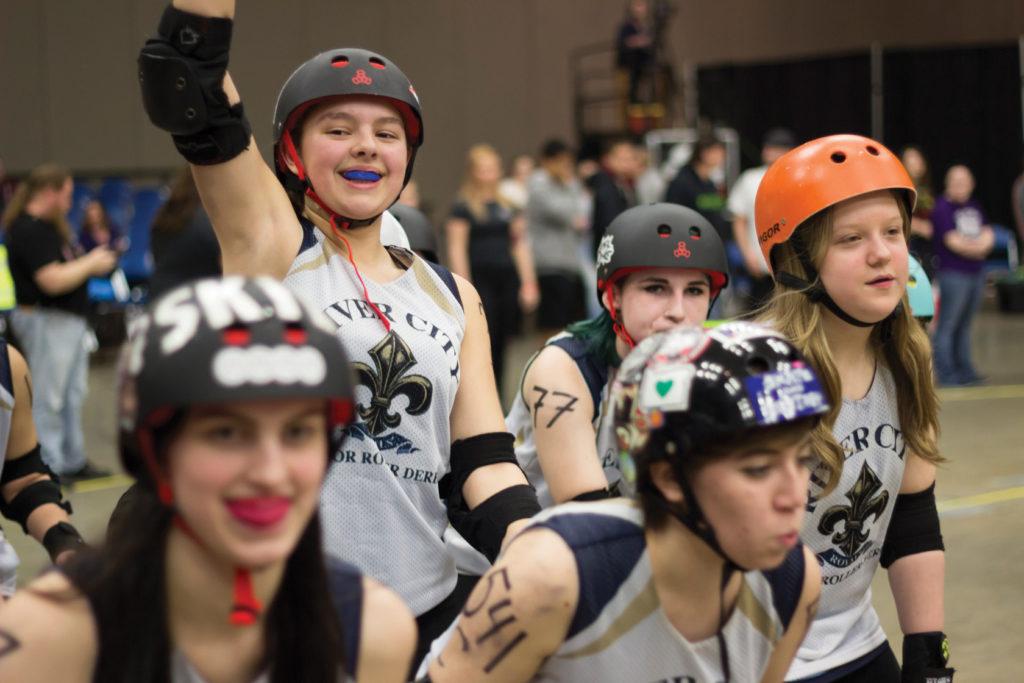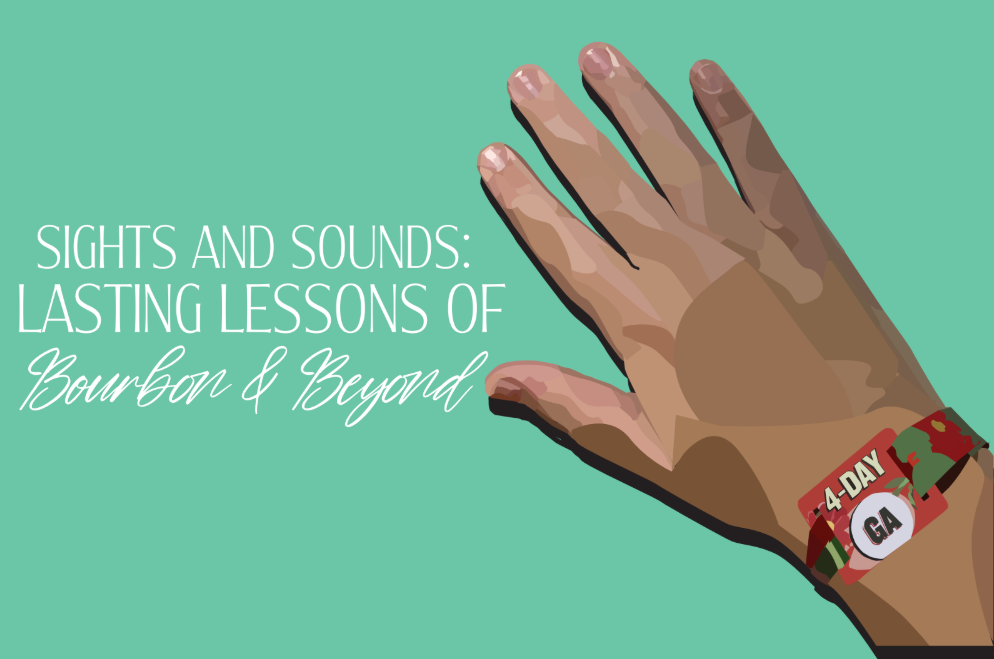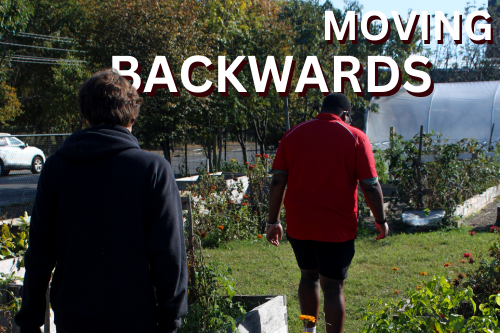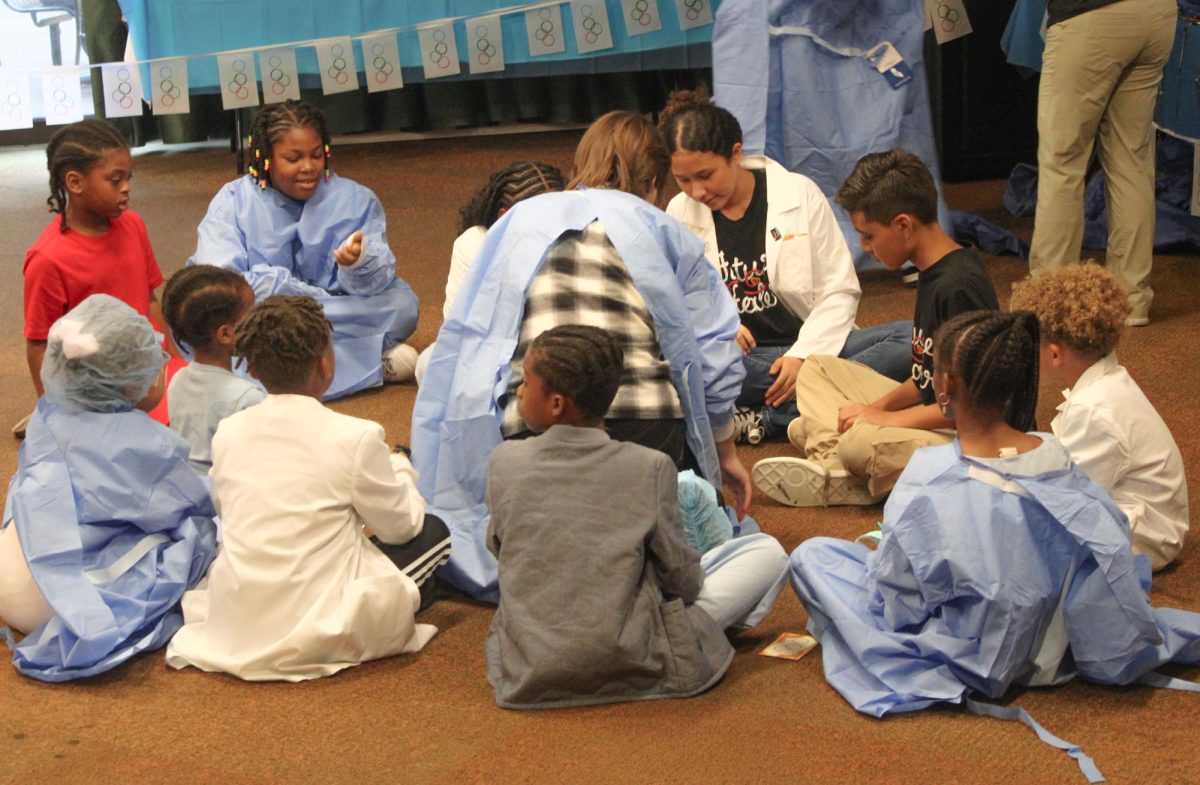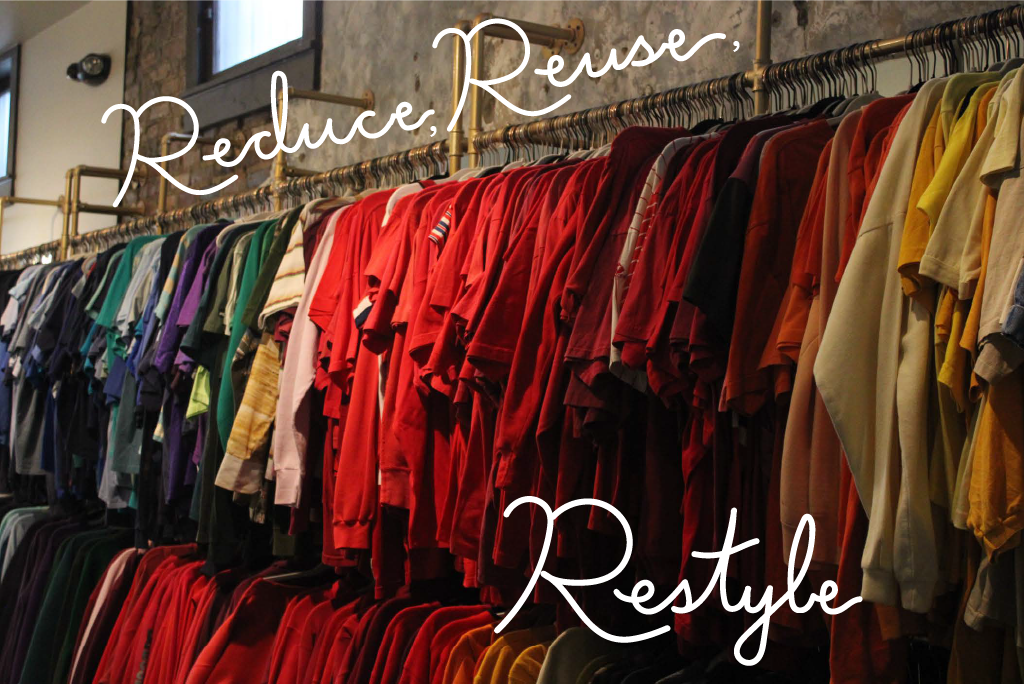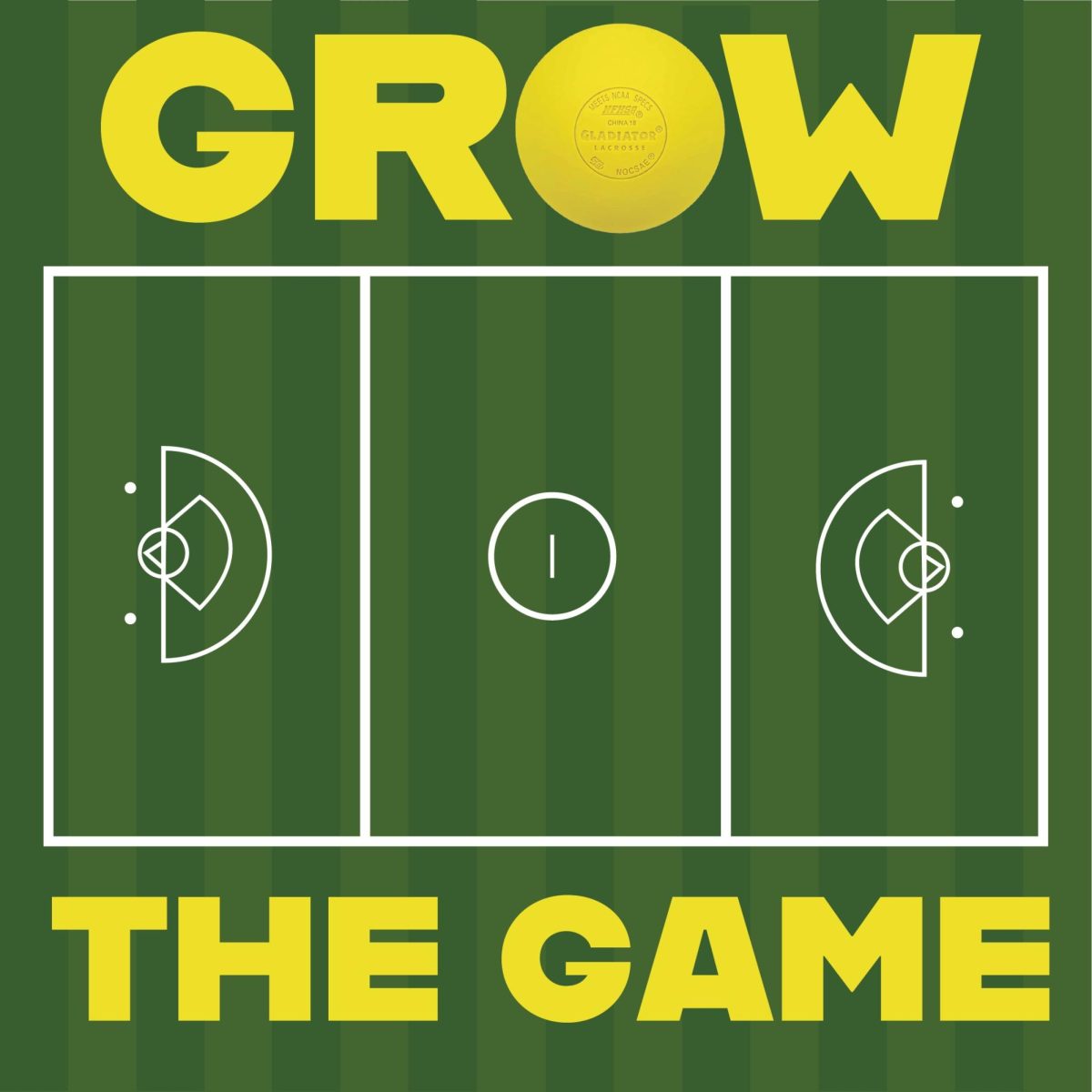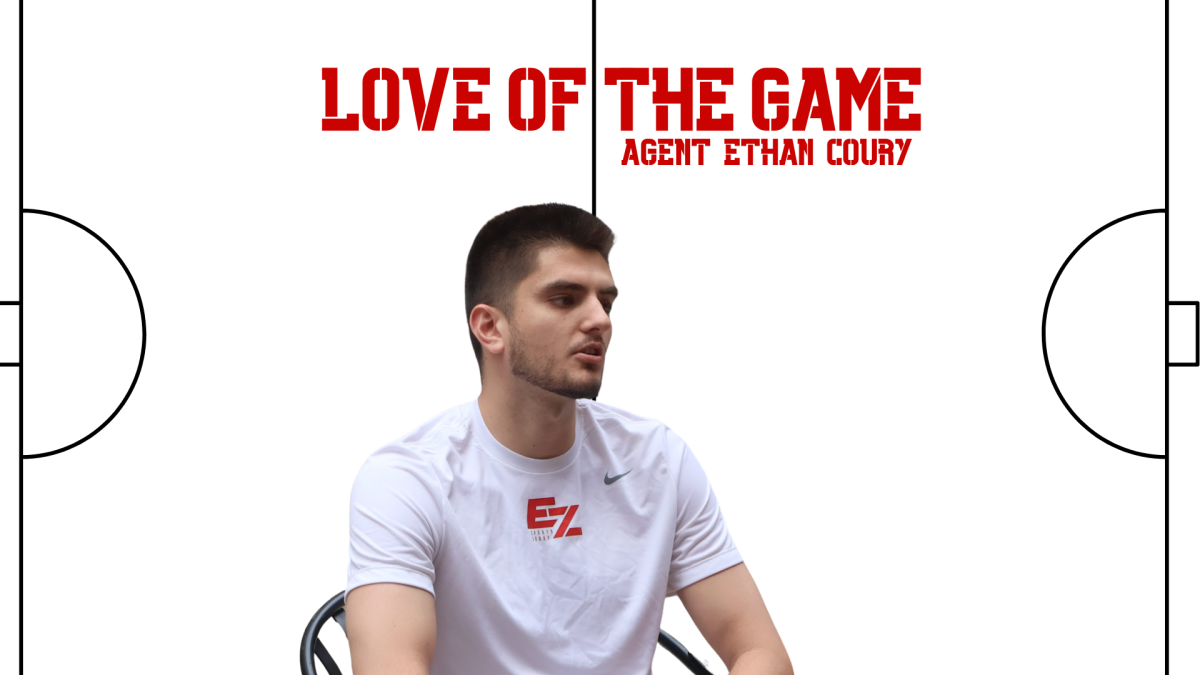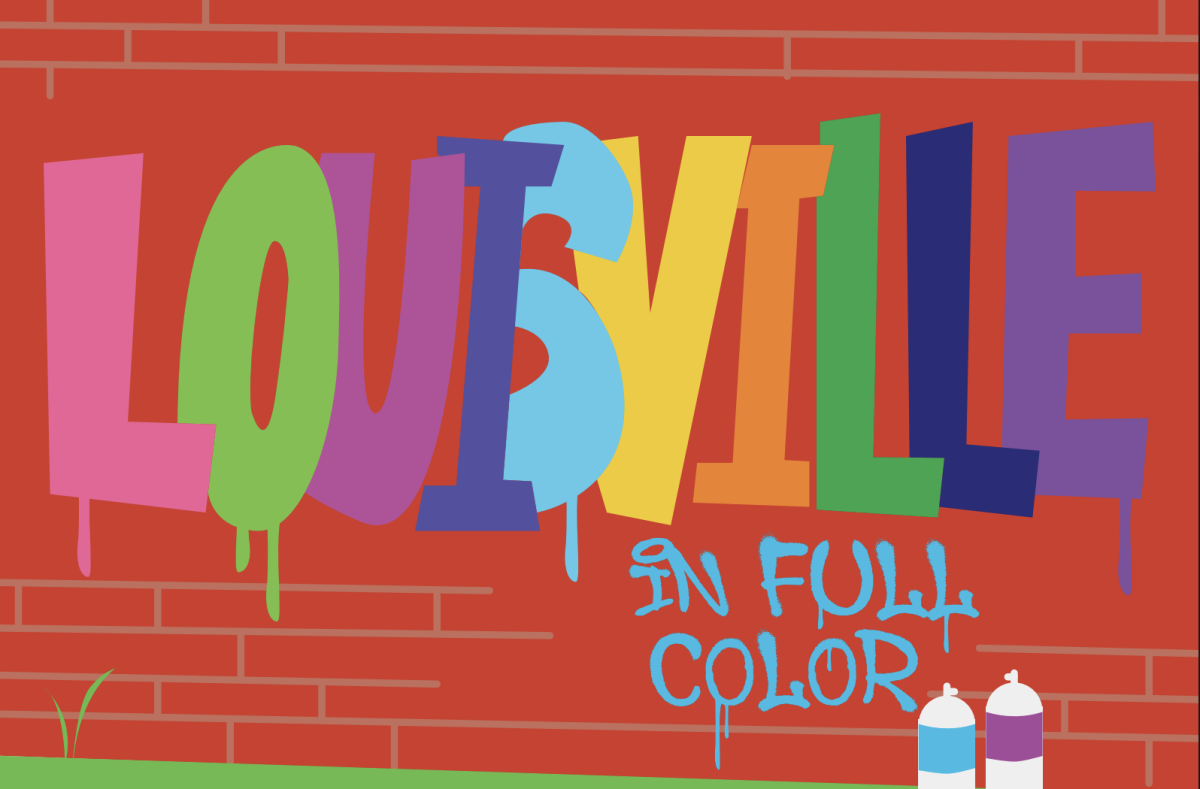Hannah Brown, better known in the roller derby world as Skull Kid, left her second practice feeling fulfilled, a sentiment she had not felt in a while.
As Hannah headed towards her mom’s car, she couldn’t help but appreciate the sense of community her new team offered her. Hannah remembered that as a cheerleader she was never able to express herself without judgment, but as she left her second roller derby practice, she knew that this team would accept her, whether it be for her edgy taste in music or for the way she dressed.
Hannah, now a 15-year-old sophomore at Oldham County High School, had previously participated in cheerleading, but unlike roller derby, she had never fit in.
“Cheerleading can be very toxic,” said Suzannah Brown, Hannah’s mom. “Sometimes, as a mom, I would see the other girls not doing a very good job supporting one another.”
Suzannah was concerned about backstabbing and bullying among the team, so when Hannah approached Suzannah about playing roller derby, she was more than willing to take her to a practice and check it out.
Hannah was instantly drawn to the fast-paced sport.
“Everyone was immediately so welcoming, and the community was amazing. I knew it was the sport for me,” Hannah said.
This will be Hannah’s second year playing roller derby. Suzannah appreciates the support and general positivity her daughter has experienced in the sport, but Hannah is not the only person who has found refuge through this community.
Dating back to the 1920s, roller derby’s modern incarnation provides an alternative to more traditional sports.
“It’s not the sport where you’re going to find people who normally gravitate towards field hockey or soccer or lacrosse … it’s for people who want something that’s a little outside of the norm,” said Adam Palmer, a coach for Louisville’s youth team, River City Junior Roller Derby.
Roller derby is a contact sport played on roller skates in which two teams consisting of five members compete against each other. Each team is called a lineup. They compete in brief matchups called “jams” that make up games called “bouts.”
In most leagues around the country, roller derby is played exclusively by adults, but recently, youth teams have been springing up around the nation.
“The kids don’t have the strategy the adults have, but what they do have is way better stamina,” Palmer said.
The River City Junior Roller Derby team was established in Louisville around five years ago. The team currently has 35 devoted players, ranging from around 7 to 18 years old. The players are divided into groups based on skill level, rather than age. These groups include a beginner group, level one; an intermediate group, level two; and an advanced group, level three. Out of the 35 players on Louisville’s youth team, about 20 are at an advanced level while the remaining members still need improvement. Palmer claims no matter the skill level of the players, they are all welcomed as a part of the roller derby community.
Palmer what’s unique about roller derby is that it brings in such a diverse group of girls.
“It’s okay that they are a little different because it’s kind of like this weird melting pot of kids and interests and styles of dress,” he said.
To the girls, roller derby is much more than a sport. This female-dominated community is a subculture dedicated to promoting female athleticism. It provides a sense of identity and belonging for the women involved.
“The team aspect of roller derby to me is one of the most appealing things about it because you are with a group of women you maybe wouldn’t usually be with,” said Shelley Palmer, one of the players on Louisville’s adult league, the Derby City Roller Girls, and the wife of coach Adam Palmer. “Once you step on the track you are on unit and you are all working towards the same goal.”
Shelley and Adam’s daughter Sophia, or Sockeye Slammin as she’s known in the rink, is a member of Louisville’s junior league. Sophia feels that the team is very tight-knit. Adam believes that roller derby as a community has always been a safe-place and has offered an environment where players can come from any background or status and still be 100 percent a part of the team. In fact, many roller derby teams, like the United Front, a team based out of Northampton, Mass., are, “an all- and no-gender team that welcomes any roster-eligible skater regardless of assigned sex, gender identity (or lack thereof), or gender presentation and expression.”
Hannah believes this acceptance has fostered a wide-ranging sense of inclusivity in the sport. She especially appreciates the fact that she can express herself without restricting expectations of who she should be and what she should enjoy.
“People are so accepting and you’re not forced to be a little peppy cheerleader girl,” Hannah said.
Not only does roller derby provide a place to be accepted, but for many like Hannah and Sophia, it is a means for empowerment.
“So far roller derby has been so much better for Hannah’s self-esteem and also giving her a positive example of how females should do nothing but support each other and never try and pull each other down,”
Suzannah said.
Throughout history, there has been a significant change in society’s gender roles, yet stereotypes still remain and are greatly reflected in the sports industry. Several studies published by University of Akron professor Susan D. Witt show that children experience gender stereotyping from parents, peers, and media. For some girls, roller derby is an escape from those stereotypes.
Dr. Dawn Heinecken, a professor in women’s and gender studies at the University of Louisville, said that society’s expectations of what is masculine and what is feminine greatly affect the way that Americans view sports in relation to gender.
“Sports became a place for men to preserve a sense of masculinity…women and girls are still what sports sociologist Cheryl Cooky calls ‘sporting outsiders’,” Heinecken said.
Many contact sports, unlike roller derby, exclude women from involvement in their professional leagues.
Heinecken believes this is due to “gender norms that view women as physically weaker and less able to endure pain than men.”
Roller derby directly challenges modern gender norms and the idea that the sports industry is a male-dominated field.
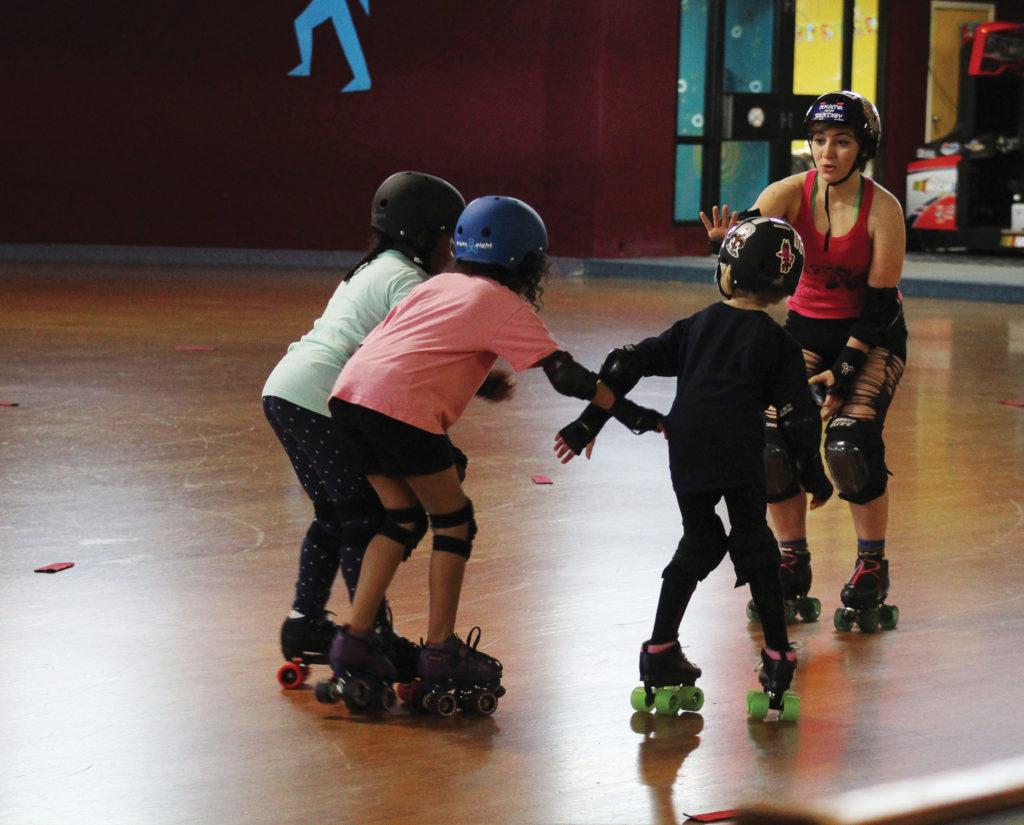
Many recent findings, like those portrayed by the Canadian Association for the Advancement of Women and Sport and Physical Activity have proven that female involvement in sports, primarily in team-based sports, greatly benefit women’s self-esteem and confidence as well as their physical health and even their grades. Roller derby is no exception.
“I’m not a very confident person but when I get on the track I’m completely zoned in on what I’m doing and every outside force that has been bothering you completely goes away,” Sophia said. “I focus on skating and helping my teammates get better at whatever we are doing.”
Sophia enjoys the everything about being on the River City Junior Roller Derby team: the challenges, the adrenaline rushes, the victories, but most of all she loves her team.
“I love that it can go from super intense and crazy focused to complete goofball on the track,” Sophia said, describing an incident where she collided with a teammate and tumbled to the floor.
The girls giggled, confused as to how Sophia’s foot got there or how they ended up tumbling like Jenga blocks in the first place—and, although Sophia was painfully aware she scraped her friend’s neck, and a welt was surely blossoming where her skate pressed the curve of her hip, she was laughing because even though she endured some bumps and bruises she was still doing what she loved: roller derby.


